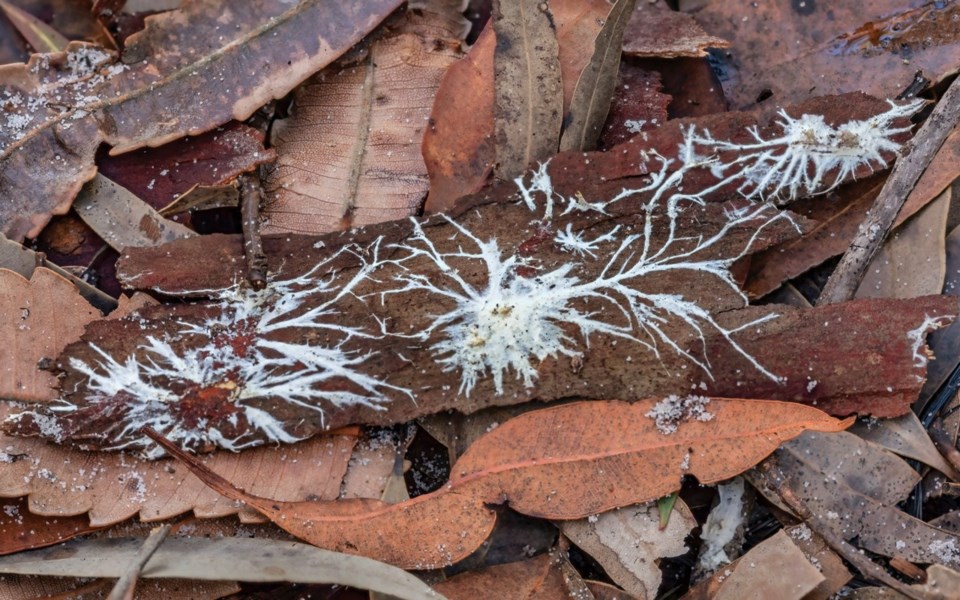Sometimes when I tell myself to breathe, it triggers panic—as if by drawing attention to this innate, unconscious, automatic action, breathing in and out suddenly becomes improbably difficult. Meditation, swimming laps, yoga...all these experiences often contain a few extremely panicked moments when I gasp, unable to catch a breath that has suddenly awakened to itself, like an animal realizing it is trapped and throwing itself at the bars of the cage.
It's weird. "Here, notice this amazing thing you do. Breathing. Doesn't it calm you down?"
"OMFG. I can't get enough air. I'm going to die!"
I feel a little bit the same about this time of year: Mild fluttery panic somewhere beneath the rib cage.
Up until now, you may have known this feeling as par for the course, as the essence of Shoulder Season, these days of Waiting for the Snow to Seriously Fly. The panic flutter channels as a kind of scarcity fear that ripples onwards and onwards, as the days shorten, darken, flip over, tumbling towards the bottom of the year: will there be enough snow? Will I get enough work? Will I ski enough days to pay off my pass? HOW many days left before Christmas? Have I got something for everyone? Will there be enough food to make it a feast? Will I manage to get through all the social occasions without melting down? Do I have enough of a tribe that I won't be lonely?
This year, thanks to Pemberton-based teacher Natalie Rousseau and her online programs, 13 Moons and The Witches' Year, I have gleaned a slightly broader perspective on this time of year. I see that these questions arise from a deeper and older one: Will the light return? Every season that saw pre-industrial people store their harvests away and duck into shelters to weather the winter and live alongside the literal fruits of their labours, the consequences of their actions over the course of the preceding year, was a time of reckoning and resolution. It was a season of living with the question, what have I done with my time? Was it good enough?
Rousseau calls this time of year, a 52-day period that runs from Samhain or Halloween to Yule or Winter Solstice, The Dark Season.
I've come to think of it as a time of Unearthing. Of things not wanting to stay in their boxes, getting untidy, becoming pushed forth. Stories. Emotions. Stuff we've tried to bury, all heaving up, surfacing in strange ways, asking to be noticed, remedied, attended to.
For weeks, as I've learned of friends' relationships breaking down and buried frictions waking up, tidied up the receipts of the year, seen stories I wrote months ago land in print, or stood in front of my pantry, outside the mushrooms were pushing themselves up with quiet force. Surfacing. Unearthing themselves. What did it all mean? Paul Stamets, the author of Mycelium Running, calls mushrooms "mycomagicians." They are not afraid of endings, of decay. They are, in fact, "the grand recyclers of our planet, disassembling large organic molecules into simpler forms, which in turn nourish other members of the ecological community. Fungi are the interface organisms between life and death."
Kind of the perfect symbol for the Dark Season. Beneath our feet, beneath this surface of frosty soil that will soon be buried even deeper by metres of snow, (may it be so), vast intelligent complex fungal networks underscore and entangle everything. This is the season in which we glean a tiny window into that, as the fruit of all that complexity pops up. The question was never, "have I done enough?" But: Have We? Collectively, not just as little tribes, but in concert with the life force surging invisibly beneath our feet, all around us.
Much is being unearthed, heaving to the surface, in these days, of unravelling climate systems. Much of our collective behaviour is nestling in for the winter, and demanding a reckoning. Sure makes you want to run for the nearest all-inclusive beach resort. Or beg the gods for the happy oblivion of a powder day.
But before the flight, or fight—before the adrenalized response—the Wheel of the Year, the cycles of history, have built in this beautiful terrifying moment, this awful awe-full moment, a chance to be still and consider: have we done enough? Where have we fallen short? If we are gifted a new breath and a new day and another season together, what shall we plant in this beautiful living Earth? What shall we bequeath the future?
"For most of our human evolution on this planet this was a season of rest," says Rousseau. "And our souls still crave it. Important work happens in the catacombs and secret chambers of our soul during this season, even if our culture doesn't recognize it."
Her prescription is generous, if not counter-intuitive to what we tend to expect of ourselves at this time of year: slow down. And notice.
The year breathes its long sigh, and here, at the bottom of the breath, there is a pause. It's OK if it makes you panic, a little. Notice that too. (Eventually it settles, I swear.) The pause is the most beautiful gift of the year, the echo of the harvest, in which all possibility hovers, looking for a place, a body, a community in which to land, to come into being once the light returns.
The Velocity Project: how to slow the f*&k down and still achieve optimum productivity and life happiness.




